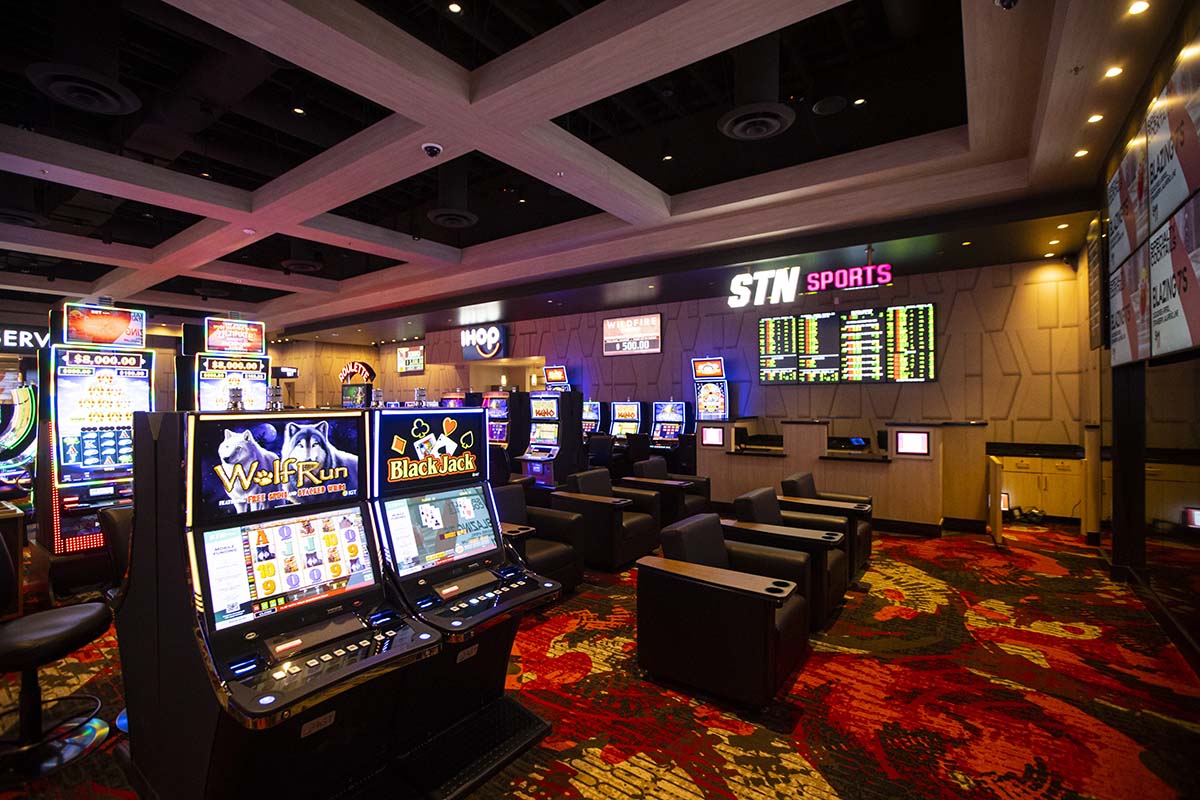
Casino entertainment have long been a significant aspect of human culture, offering not just entertainment but a intriguing reflection of our dreams, dreams, and concerns. From the turning reels of a slot machine to the skill-based strategies of poker, these games encapsulate a spectrum of human feelings and experiences. At their core, casino games are more than a chance to earn cash; they are a microcosm of life itself, where risk versus reward intertwine and fortunes can change in an eye blink.
As players convene around tables or sit in front of vibrantly illuminated machines, they participate in a ceremony that transcends mere playing. These games reflect our natural desires for relationships, adventure, and the quest for chance. They also reveal deeper truths about human behavior, such as our relationship with fate and the adrenaline of the unknown. In exploring casino games, we discover not only the nuances of play but also the rich tapestry of the human story, showcasing our woven narratives of goal and reality.
The Mind Behind Gambling
Wagering is intrinsically connected in human psychology, tapping into various emotions and wants. The thrill of taking risks is a fundamental aspect that attracts participants, whether the thrill of spinning a roulette or the anticipation of drawing a winning hand in a poker game. This rush of adrenaline is frequently likened to other forms of excitement, as the uncertainty of outcomes elicits a distinct psychological response. Gamblers often find themselves captivated by the chance of striking it rich, leading to an irresistible draw toward casino games.
Another, a crucial component of the psychology behind gambling is the concept of hope and ambition. Participants often nourish dreams of financial freedom and the luxurious lifestyle that can accompany winning. This hope fuels their continued participation in casino games, as it provides a sense of purpose and the belief that a life-changing win could be just one wager away. The narrative of beating the odds and achieving success resonates with many, reinforcing their commitment to play and engage with these games.
Lastly, social dynamics play a crucial role in gambling psychology. Casino environments are designed to foster social interaction, where gamblers gather to share the experience of wins and losses. This communal aspect not only amplifies enjoyment but also affects behavior, as individuals often mimic the actions of others around them. The collective approval found in shared excitement can magnify the emotional experience, making casino games a mirror of not just personal desires but also collective engagement within the gaming community.
### Risk and Reward: A Double-Edged Sword
Casino games embody the fragile balance between danger and reward that resonates profoundly with the human experience. The excitement of placing a bet is often accompanied by a jolt of energy, as gamblers are confronted with the prospect of a huge payout, yet conscious of the risk to suffer losses. This bipartisan experience reflects a core aspect of life: the decisions we face often come with intrinsic risks, and the chase for gain can drive us to take chances we might not normally consider. In this way, casino games reflect real-world choices, enticing gamblers to risk not just their funds, but also their aspirations.
The allure of big prizes and winnings fuels a wave of hope, encouraging gamblers to dream of a brighter future that could arise from a fortunate turn of the wheel or flip of a card. This hope can motivate individuals to engage in more daring actions, pushing them to extend their limits in search of financial gain. However, just as in life, the results of these risks can lead to both triumph and loss. The stories of both jackpot winners and those who have suffered everything at the tables demonstrate the chaotic nature of luck and its consequential effect on our lives.
Ultimately, the experience of engaging with casino games serves as a vivid illustration of the nature of humanity. Every game played is imbued with the tension of risk, as players weigh the rewards against the dangers. This interaction not only highlights the thrill that comes with betting but also reveals the weaknesses that come with the longing for more. As we explore the complexities of choice and consequence in both the casino and in life, we find that the search for benefit shapes our sense of self and lives in significant manners.
Culture and Isolation in Casino Culture
Gambling culture is a special blend of social engagement and individual pursuit, reflecting the dualities of human experience. Gamblers often come together around games, experiencing in the thrill of the game, celebrating wins, and sympathizing over losses. This social aspect is essential, as it creates a sense of belonging and camaraderie among diverse groups of individuals. Regular attendees to gaming establishments may build friendships and develop routines, turning the casino into a alternative home where they feel linked to a larger community of gamblers. VU88
However, the appeal of casino games can also lead to loneliness. As individuals become immersed in the thrill of playing, they may isolate from personal relationships or fail to interact with the environment outside the casino. For some, the pursuit of a jackpot can overshadow real connections, leading to loneliness. The experience of being surrounded others yet experiencing solitary is not rare, as the focus shifts from collective fun to the private stakes of each individual’s journey.
This interaction of community and solitude creates a vivid tapestry that defines gaming culture. It highlights the intricacy of human interactions, where happiness and sorrow exist together. Casinos serve as both a sanctuary for social interaction and a platform for individual challenges, demonstrating how intimately entwined our yearning for companionship and the individual quest for fortune can be. In navigating this environment, gamblers confront their own narratives—seeking both the thrill of the wager and the fellowship of fellow gamblers, ultimately mirroring the broader spectrum of individual experience.
